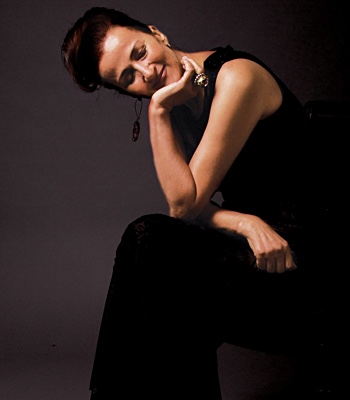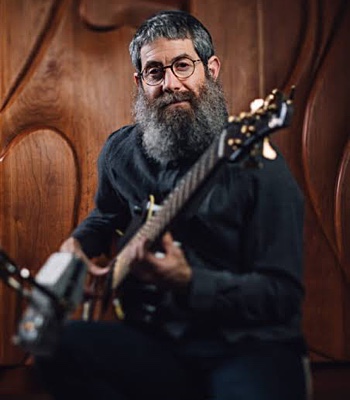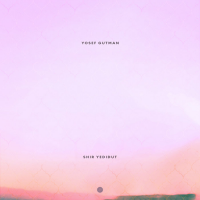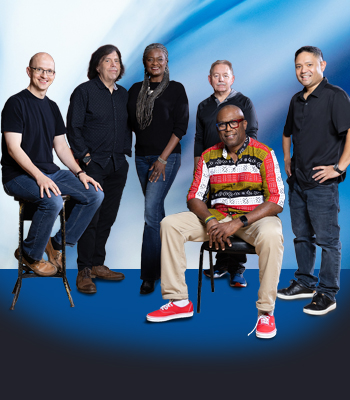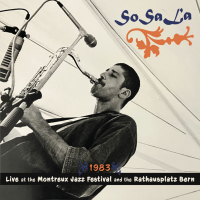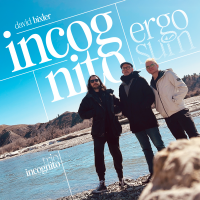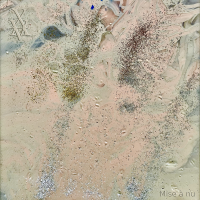Sten Hostfalt/Jimmy Weinstein/Blaise Siwula+Guests Live at Nublu NYC April 9
Sten Hostfalt-guitar, Jimmy Weinstein-drums, Blaise Siwula-alto/tenor saxophone + Guests.
JIMMY WEINSTEIN - Drums ( b. January 10, 1960 )
A restless and very unpredictable post-bop and avant-garde drummer, Jimmy Weinstein has no problem embracing airy, even lilting post-bop melodies one minute and dissonant "outside" improvisation the next. Some of his songs have been pretty left of center, while others have been quite melodic, congenial and accessible. Although born in Chicago, Weinstein grew up in Southern California and Mallorca, Spain. After taking piano lessons as a child, Weinstein became a drummer at age 12. He played in rock bands as a child, but as time passed, he became more jazz-oriented. In 1986, he moved to Boston to study at the Berklee College of Music and studied privately with drummer Alan Dawson. Weinstein chose to make Boston his permanent home, and it was at the University of Massachusetts that he studied with Max Roach. In the early 1990s, Weinstein founded a Boston-based quartet that included tenor saxman Don Houge, guitarist Elie Massias and bassist Masa Kamaguchi. Houge was replaced by Chris Cheek in 1994. Weinstein's CDs as a leader include 1994's Nostalgia on Accurate and 1998's Sound Emotion on Gunther Schuller's GM label. - Alex Henderson, All Music Guide.
BLAISE SIWULA - Tenor/Alto Saxophone, Clarinet
Creative improvising saxophonist Blaise Siwula was born February 19, 1950, in Detroit, MI, growing up in a working/middle-class black neighborhood. His next-door neighbor practiced saxophone in the afternoon and occasionally allowed him inside to watch him play. Involved with the arts for all of his life, he began studying the alto sax at the age of 14, playing in the middle-school concert band. Hearing John Coltrane's LP Om in 1969, he felt compelled to take the tenor saxophone and make his voice heard on it. Siwula was influenced by hearing Art Pepper in San Francisco, as well as Ornette Coleman, Sonny Stitt, Archie Shepp, Pharoah Sanders, Sun Ra, Blue Mitchell, Elvin Jones, and Miles Davis in memorable live performances around the Detroit area in the early '70s. Cecil Taylor's recordings with Jimmy Lyons were inspirational in a later period. The Ann Arbor Blues & Jazz Festival in 1972 and performances by Ravi Shankar and the Detroit Symphony Orchestra were also telling.
At college on and off for an extended period from 1968-1980, he studied theory and composition at Wayne State University, but earned a B.F.A. Siwula's first personal encounters with jazz musicians came around 1971 while living in a hotel near the downtown campus of Wayne State. Drummer Doc Watson had been hanging out while living there and returned to school to study composition. He and Siwula spent evenings talking about music, art, and Charlie Parker. Then the saxophonist got married, moved to San Francisco, and started playing free improvised music in coffeehouses and writing poetry. He was influenced by Spanish Civil War poets like Miguel Hernandez and Federico García Lorca, French poets Baudelaire and Rimbaud, beat poet Gregory Corso, Hart Crane, and W.B. Yeats. After four years in Northern California, he came back to Detroit, then headed for Europe in 1989, working and traveling as a street musician for three months, then returning to the States and settling in New York City. After periodic explorations of drama, poetry, architecture, and visual art, and quite unable to secure a recording contract initially, Siwula made his music available via independently produced cassette tapes. Since then, the self-determining Siwula has been actively involved with the metro New York improvisation scene, including working with Amica Bunker, the Improvisers Collective, and (most prominently) the Citizens Ontological Music Agenda (COMA) series. Siwula had initially booked shows with Bunker in 1991-1992, and COMA was created, formally staging diversified concerts centered in free music on a continual basis since March 1998. Every Sunday, some type of improvised music assembly was presented, with an open forum session afterwards. Once a year, COMA produced a benefit/festival where over 100 musicians gathered and made music on all the floors, the roof, and the garden of their venue. During the decade of the 2000s, Siwula as a spontaneous composer has incorporated traditional musical scoring techniques with visual/graphic and performance-oriented presentations. Primarily an alto saxophonist, he plays a number of saxophones, clarinets, flutes, percussion and string instruments, and computer-altered sound files as background for improvisation. His many collaborators have included Doug Walker's Alien Planetscapes, Cecil Taylor's Ptonagas, William Hooker's ensembles, Judy Dunaway's Balloon Trio, Dialing Privileges with Dom Minasi and John Bollinger, Ken Simon, Karen Borca, Jackson Krall, William Parker, Mike Khoury, Eyal Maoz, Jeff Platz, Joseph Scianni, Adam Lane, Carsten Radtke, Peter Kowald, Perry Robinson, Newman Taylor Baker, John Voigt, Wilber Morris, Vincent Chancey, Theo Jörgensmann, Michael Zerang, Fred Lonberg-Holm, Rashid Bakr, Tatsuya Nakatani, Dominic Duval, Jay Rosen, Lukas Ligeti, Sarah Weaver, James Ilgenfritz, Fala Mariam, Ernesto Rodrigues, Hilliard Greene, Joe McPhee, Daniel Carter, Bern Nix, Syd Smart, Brian Groder, Ernesto Diaz-Infante, Matt Sullivan, Tan Dun, Maria De Alvear, Vattel Cherry, and Jeff Arnal. - Michael G. Nastos, All Music Guide
STEN HOSTFALT - guitar. ( b. Lulea, Sweden 1962 )
New York City guitar virtuoso, composer and bandleader Sten Hostfalt was born in the far northern Scandinavian industrial small town of Lulea, near the arctic circle and as a descendant of urbanized farmers raised in a working class community and environment. Initially largely self-taught as a musician, his aesthetics was shaped on the early 80's Independent Scandinavian Progressive Improvised music & art scene, manifested through DIY concerts and self-produced cassette tapes distributed by a local punk/new wave fanzine.
Subsequently introduced on the late 80's-early 90's international jazz and improvised music scene through studies and concerts with legendary icons of American Music JImmy Giuffre, Paul Bley, Joe Maneri and George Russell, composition masterclasses with Toru Takemitsu and Gyorgi Ligeti as well as single performances with masters of jazz Gary Burton and Peter Erskine. His initial contribution to New York City's jazz and improvised scene was made weekly at Smalls Jazz Club, 1994-95 during the inception and early years of the since very influential venue. In the initial edition of Guillermo Klein's large ensemble that named 'Big Van' was deemed "One of the better continuing experiments in New York" by Peter Watrous of The New York Times. And on the band's debute recording "El Minotauro" ( Candid Records ) that lauded by Jazz Times Magazines Marcela Breton and four star rated by David R. Adler in All Music Guide, in retrospect was listed among "The Past Decades Most Influential Jazz Recordings" by NPR National Public Radio. Since leaving Klein's orchestra, working with traditional jazz orchestras / big bands, as a bassist with modern electronica outfits, as well as staging projects in collaboration with poetry and modern dance.
In the new millenium Mr. Hostfalt's work has almost exclusively been devoted to his own projects as a New York City based guitarist, string-instrumentalist, composer, bandleader, music educator and independent label proprietor. Much of which has involved work with music beyond the tempered 12-tone spectrum or microtonal music, inspired by mentor Joe Maneri's 72-note equal tempered virtual pitch continuum. In addition to over two decades of tours and performances worldwide alongside some of the world's most innovative musicians, Invitations to hold lectures at The New World School For The Arts University of Florida and Berklee College of Music as well as performances with NY Jazz Acdemy at Carnegie Halls Issac Stern Auditorium and solo concerts at New York's Symphony Space. And his six acclaimed audio CD releases as a leader or co-leader on his own label Sonus Rex ( previously g-wOw ) has all in all, over time earned him international recognition for with self-invented new interpretative techniques for the standard 6 string/12-fret guitar, contributing to expanding and updating the vocabulary for the world's most popular, most played instrument. www.sonusrex.com
show less




